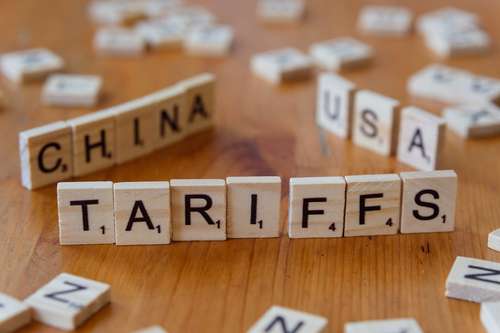North Korea launched three ballistic missiles off its east coast on Wednesday, according to Seoul's military, barely hours after US President Joe Biden left the region after agreeing to strengthen deterrence measures against the nuclear-armed regime.
The three ballistic missile launches were launched in less than an hour from the Sunan area of Pyongyang, according to the Joint Chiefs of Staff of South Korea.
This year, North Korea has launched a flurry of missiles, ranging from hypersonic weaponry to the first test launching of its largest intercontinental ballistic missiles (ICBMs) in nearly five years. For the first time since 2017, it looks to be ready to test a nuclear weapon.
North Korea appeared preparing for another weapons test, according to US and South Korean officials, possibly during Biden's visit, which was his first to Asia as president.
Biden, who left Japan on Tuesday evening, had been briefed on the launches, according to a White House official, and will continue to receive updates.

At least two launches were reported by Japan, with the possibility of more. According to Japan's defense minister, one of the missiles flew 750 kilometers (465 miles) to a maximum altitude of 50 kilometers and appeared to be capable of changing its route in flight. According to him, another missile flew roughly 300 kilometers and reached a maximum altitude of 550 kilometers.
The missiles looked to have fallen outside of Japan's exclusive economic zone, according to NHK (EEZ).
The Indo-Pacific Command of the US military claimed it was aware of "several" launches. It stated in a statement that they underlined the "destabilizing impact of the DPRK's illegal weapons development," but that they did not constitute an imminent threat.
Biden and his South Korean counterpart, Yoon Suk-yeol, agreed in Seoul over the weekend to undertake larger military drills and deploy more US strategic assets if necessary to discourage North Korea's increasing missile tests.
They did, however, offer to supply COVID-19 vaccinations to North Korea, which is fighting its first confirmed epidemic, and they urged Pyongyang to return to talks. Read the entire story
Biden stated at the time that Pyongyang had not responded to diplomatic overtures or humanitarian offerings.
In a clear farewell to Biden's visit to the region, Russian and Chinese bombers flew combined patrols near Japanese and South Korean air defense zones on Tuesday.
Japan sends out fighter airplanes to intercept Chinese and Russian warplanes

Japan scrambled jets as Russian and Chinese airplanes approached its airspace on Tuesday, while the leaders of Australia, the United States, and India were in Tokyo, according to Japan's Defense Minister Nobuo Kishi.
Defense Minister Kishi said at a news conference that was streamed online that Japan had expressed "grave concerns" to both Russia and China through diplomatic channels following the incident.
On a day when US President Joe Biden, Indian Prime Minister Narendra Modi, and Australia's freshly elected leader Anthony Albanese were meeting in Tokyo, he described the incident as a likely provocation by both Beijing and Moscow.
"We believe this move is more offensive than in the past because it was conducted during the Quad meeting," he added, adding that it was the fourth such occurrence since November.
Defense Minister Kishi said two Chinese warplanes passed over the Sea of Japan from the East China Sea, followed by two Russian warplanes flying together toward the East China Sea.
The two Chinese jets were then replaced by another pair of Chinese warplanes, which flew with the Russians on a long mission toward the Pacific Ocean.
Questionable timing
It was unclear whether the drills were timed to coincide with President Biden's first trip to Asia as President, during which he visited allies South Korea and Japan, as well as joining the leaders of Japan, India, and Australia for their second in-person summit on Tuesday.
The US military's Indo-Pacific Command confirmed that "several" launches had occurred.
They emphasized North Korea's "destabilizing impact" but did not constitute an urgent threat, according to a statement.
President Biden stated at the time that Pyongyang had not responded to diplomatic overtures or humanitarian offerings.




